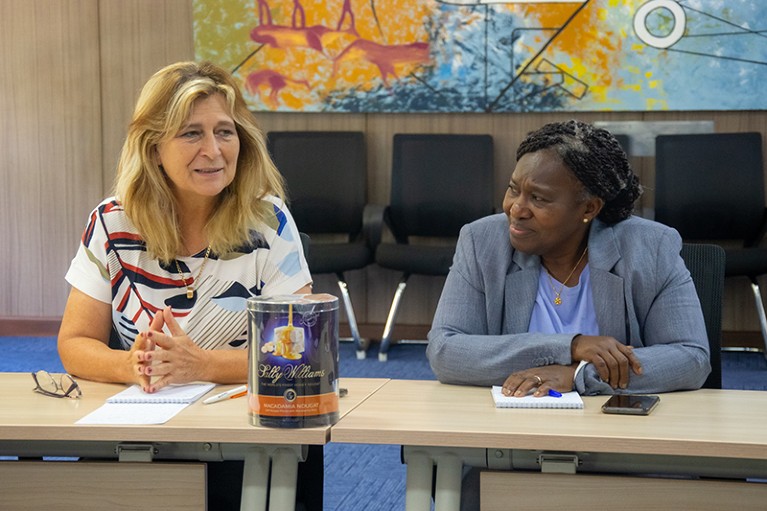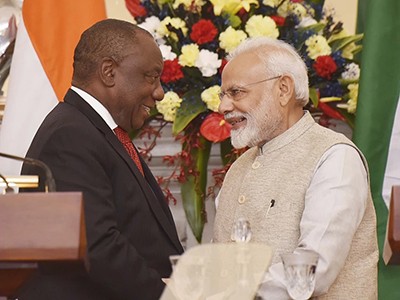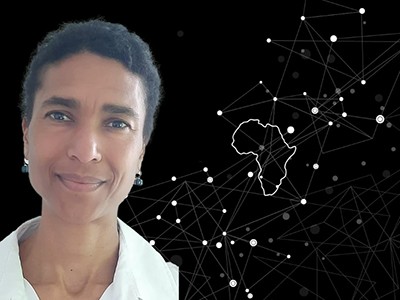[ad_1]

Lise Korsten (left) and Peggy Oti-Boateng are steering the African Academy of Sciences’ new technique.Credit score: AAS Kenya
“We now have a renewed mission,” the manager director of the African Academy of Sciences (AAS), Peggy Oti-Boateng, proudly declared on the launch of the academy’s strategic plan on 29 February. “In our earlier mission, we have been leveraging our sources, however now we need to leverage science, expertise and innovation for sustainable growth on the continent.” As AAS president Lise Korsten advised Nature: “We need to actually pitch ourselves as a worldwide academy, representing the voice of African scientists.”
For the AAS, it is a vital, welcome and well timed step forwards, and hopefully the beginning of a brand new chapter in its close to 40-year existence.
It comes after a troublesome episode within the AAS’s historical past. The academy, which relies in Nairobi, is a pan-African fellowship society — modelled on many academies world wide. Its founding members included the late Kenyan entomologist Thomas Odhiambo, founding head of the Worldwide Centre for Insect Physiology and Ecology, and Sudanese mathematician Mohamed Hassan, previously president of TWAS, the World Academy of Sciences. Some 30 years after its creation, in 2015, the AAS, the African Union and worldwide funders, together with the Invoice and Melinda Gates Basis and the UK biomedical charity Wellcome, agreed that the academy would host and handle a research-funding platform on behalf of those funders.

Researchers again African Union to hitch G20 group of largest financial powers
The AAS secretariat grew from a physique with 19 workers members in 2014 managing a price range of round US$5 million a 12 months, to 1 with greater than 60 workers, distributing greater than $250 million per 12 months in health- and biomedical-research grants. In 2021, following inside tensions on the academy and the suspension of some senior workers members, the funders withdrew, saying that that they had misplaced confidence within the AAS’s governance techniques. A lot of this performed out in public, placing the academy’s repute in danger.
In equity, the academy mustn’t have been put in that place within the first place. Scientific academies are usually not usually set as much as operate as large-scale funding businesses. Their position tends to be to acknowledge their nation’s researchers by fellowships and awards, symbolize the pursuits of science to governments and, the place wanted, advise policymakers. A part of their power comes from being a trusted physique of specialists. This implies they need to additionally not align themselves — or be perceived to be aligning themselves — with exterior organizations. Many AAS fellows had voiced considerations alongside these strains.
Along with the most recent plan, the academy now has a recent management and governing council. Oti-Boateng, a Ghanaian biochemist who was previously a science adviser on the United Nations schooling, science and cultural group UNESCO, works with Korsten, a South African food-security researcher who’s the AAS’s first feminine president.
The plan is ready to run till 2027, and has 5 areas of focus: environmental and local weather change; well being and well-being; pure sciences; coverage and governance; and social sciences and humanities. Making enhancements in these areas is a precedence not just for African nations, but in addition for nations globally.
Wanting forward
This technique couldn’t have come at a extra necessary time. Final 12 months, the African Union joined the G20, a gaggle of the world’s largest economies. Scientists meet by the S20, a community of G20 scientific academies, to debate international challenges and in addition particular problems with concern to the scientific group. Earlier than the African Union joined the G20, South Africa was the continent’s sole official consultant in G20 our bodies. In contrast, Europe’s researchers have illustration from the academies of France, Germany, Italy and the UK, in addition to Academia Europaea, a pan-European academy headquartered in London. The AAS, together with particular person nations’ science academies, represented by the Community of African Nationwide Academies, is contributing to occasions main as much as this 12 months’s G20 summit, to be held in July in Rio de Janeiro, Brazil. The assembly agenda consists of combating local weather change and attaining the UN Sustainable Improvement Targets.

African Constitution to redress funding imbalances
The AAS’s plan additionally includes attracting scientists within the African diaspora as members. For many years, the continent has haemorrhaged scientists to Europe and North America, and the AAS’s management needs to advertise researcher and scholar hyperlinks between diaspora scientists and colleagues engaged on the continent. “We now have misplaced a gaggle of younger lecturers who ought to have now been leaders on the continent, the professors of the longer term — and perhaps we are able to partially deliver them again,” says Korsten. On the similar time, broadening the membership ought to assist to strengthen the academy’s funds, which would scale back its reliance on governments and philanthropic donors. The AAS is funded primarily by membership charges paid by its roughly 460 fellows, in addition to from the curiosity from a $5-million endowment fund given to the academy by the Nigerian authorities in 2001. Different sources embrace mobility grants from exterior organizations and cash from the European Union African Analysis Initiative for Scientific Excellence programme, which helps early- and mid-career researchers in dozens of African nations.
The academy has been by some arduous occasions since 2021. It has learnt necessary classes and is embarking on an necessary new part. All of us who assist science in Africa ought to assist the academy, and be a supportive, essential good friend to the academy because it strives to attain its objectives.
[ad_2]
Supply hyperlink




